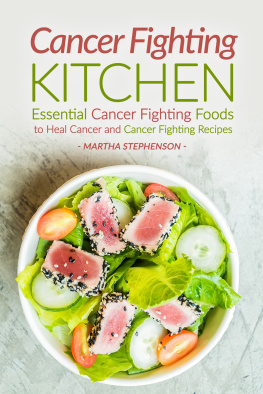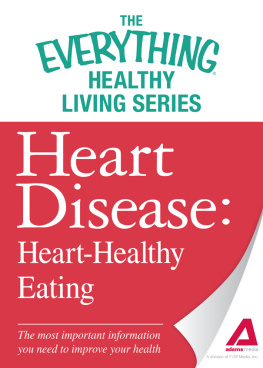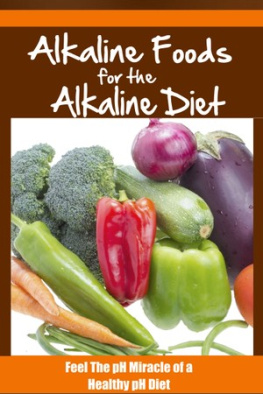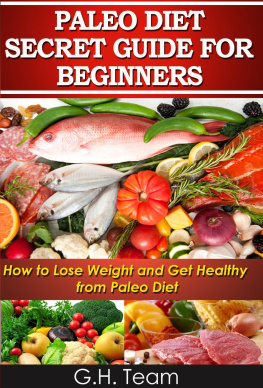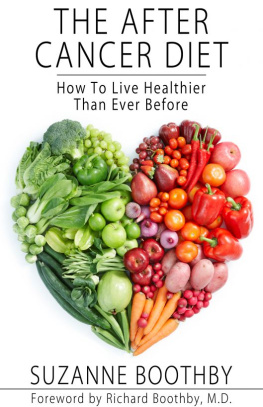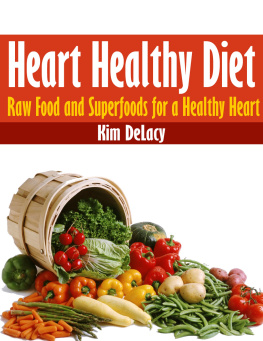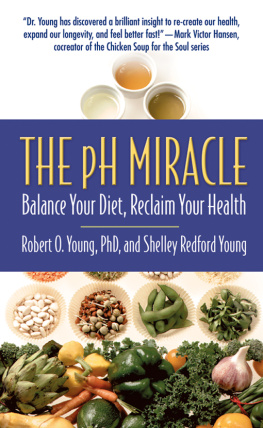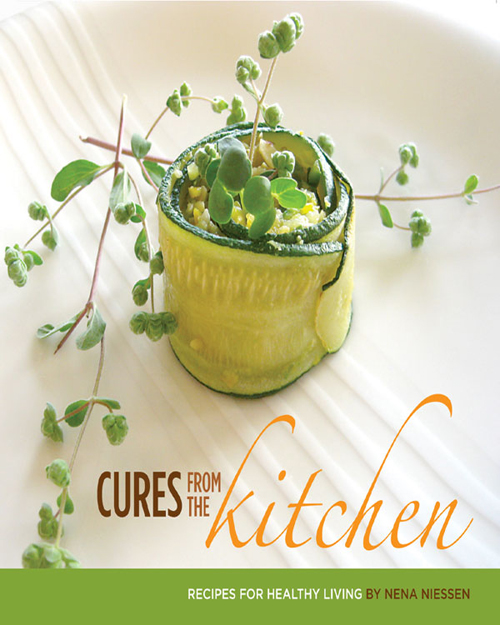
This book is dedicated to my wonderful friend, Debi Brown.
Debi, thank you so much for all the time youve invested putting together the cooking classes which made this book possible. For sharing all of your wonderful friends, for your kind words of encouragement and for believing that this book can make a difference in someones life.
I know how passionate you are about health and good nutrition and that you wish everyone could see how a plant-based diet can make an impact in their lives. Debi you are an amazing human being with a great desire to do good for humanity.
I am so thankful that you are in my life, my dear friend.
Love, Nena
2010 Nena Niessen
Second Printing October 2010
Table of Contents
Appetizers
Beverages
Nutritional Nut Milk:
Almond,
Hazelnut,
Pumpkin & Sunflower Seed
Salads and Dressings
Soup
Vegetarian Entres
Fish and Sauces
Desert
Herbs to Enhance Your Health
Anise has been used for centuries in both foods and medicines. The ancient Greeks and Romans recommended it for coughs. It works as a digestive and helps relieve intestinal gas.
Basil is known to carry a number of healthy effects, particularly on the cardiovascular system. Because basil is such a good source of vitamin A, the herb is believed to aid in providing good eyesight, healthy hair and healthy skin.
Bay leaf has been used as an herbal remedy for headaches. It contains compounds called parthenolides, which have proven useful in the treatment of migraines. Bay leaf has also been shown to help the body process insulin more efficiently, which leads to lower blood sugar levels. It has also been used to reduce the effects of stomach ulcers.
Cardamom increases appetite and soothes the mucous membrane. It relieves gas and heart-bum caused by garlic and onion. It improves digestion and stimulates the metabolism. Ground cardamom seed mixed with ginger, cloves and coriander, is an effective remedy for indigestion.
Cayenne pepper increases metabolism by immediately influencing the venous structure. It is nothing short of amazing with its effects on the circulatory system as it feeds the vital elements into the cell structure of capillaries, veins, arteries and helps adjust blood pressure to normal levels. Cayenne cleans the arteries as well, helping to rid the body of the bad LDL cholesterol and triglycerides. It is also great for the stomach and the intestinal tract.
Cilantro is a powerful natural cleansing agent. It has been effectively used to help remove heavy metals and other toxic agents from the body. Its powerful anti-inflammatory benefits may help with symptoms of arthritis. Cilantro helps reduce nausea, provides relief for stomach gas and is an overall digestive aid.
Cinnamon may help people with Type 2 diabetes control blood sugar levels, and significantly lower LDL bad cholesterol, total cholesterol and triglycerides (fatty acids in the blood). In some studies, cinnamon has shown an ability to stop medication-resistant yeast infections. In a study published by researchers at the U.S. Department of Agriculture in Maryland, cinnamon reduced the proliferation of leukemia and lymphoma cancer cells. It also has an anti-clotting effect on the blood.
Cloves are stimulating and have antibacterial, antiviral, antifungal and antiseptic properties. They are also a natural anesthetic (due to the eugenol oil) and were often used for dental procedures in centuries past and are still used in some cultures as a remedy for toothache. The compound eugenol has been found to prevent blood clots and help with blood circulation.
Cumin has been used for relief of digestive disorders throughout history. It can help with flatulence, indigestion, diarrhea, nausea and morning sickness. Cumin is also said to help relieve symptoms of the common cold due to its antiseptic properties. It is said to be a good salve for boils made by grinding seeds with water and applying to the affected area. Cumin makes a great tonic for the body even if you dont have a specific ailment to cure. It is said to increase the heat in the body thus making metabolism more efficient. It is also thought to be a powerful kidney and liver herb and can help boost your immune system.
Dill is high in substances known as monoterpenes which have been shown to have anti-cancer properties. These monoterpenes exert their effects through a variety of mechanisms including activating enzymes that detoxify cancer causing substances. This suggests that dill may help to offset some of the carcinogenic effects from exposure to everyday pollutants and chemicals. Dill contains components known as polyacetylenes which have been shown to have anti-bacterial and anti-fungal activity as well as anti-inflammatory effects. Dill shares a similarity with garlic in preventing bacterial overgrowth. The herb is rich in calcium, which lowers the bone loss, particularly after menopause and in some conditions like rheumatoid arthritis. It contains flavanoids and vitamin-B complex, which stimulate the secretion of enzymes and hormones with calmative effect. Thus, it helps in having a peaceful sleep. Dill helps in increasing the amount of urination and thereby, aids the body in getting rid of toxic elements.
Fennel is a great source of vitamins, minerals and dietary fibers. Its beneficial effects have been known for centuries. The seeds, leaves and roots of the fennel plant have been used as medicinal agents as far back as ancient China. It is used for congestion, conjunctivitis, stimulating appetite, prevention against muscle spasms and for helping to relieve gas and an upset stomach. Fennel is an antispasmodic, diuretic, expectorant and stimulant. Fennel contains nutrients similar to those of celery, which belongs to the same family, but it is the essential oil that promotes relief for an upset stomach. It is also used for cancer patients after radiation and chemotherapy treatments to help rebuild the digestive system.
Garlics health benefits are substantiated by a wealth of research that confirms its anti-viral, anti-bacterial and anti-fungal properties. It is also a powerful antioxidant and immune booster with anti-inflammatory properties. Scientific studies reveal benefits for diabetes, cancer and heart disease. Its heart health traits include lowering bad cholesterol and blood pressure, aiding circulation and preventing against stroke. One of the most common ailments garlic has been said to treat is the common cold. Studies have shown that garlic extract improves immune function, giving our natural defense system a boost, and helping it conserve the levels of antioxidants in our system. It is this strengthening of the immune system that aids in its support for other health related conditions.
Ginger has been used medicinally for over 5000 years. Unlike most spices, the part that has the most medicinal value grows under ground. Often mistakenly called ginger root this is actually more of a subterranean stem than a root. Although you can use dried ginger and powdered ginger for health benefits, fresh ginger is preferred. One of gingers most touted benefits is for digestive ailments. It can help digest fatty foods and break down proteins. It is excellent for reducing gas. Gingers volatile oils, which are also responsible for its pungent taste, cause more digestive enzymes to be produced which helps with the whole digestion process and neutralizes the acids that can cause nausea, cramps and even diarrhea. Its warming properties make it effective in stimulating circulation of the blood and is said to help prevent blood clots from forming. The warming effects make it a natural decongestant as well as an antihistamine, making it the perfect remedy for colds. Studies have shown that ginger might also have a role in lowering LDL cholesterol because the spice can help reduce the amount of cholesterol that is absorbed.


